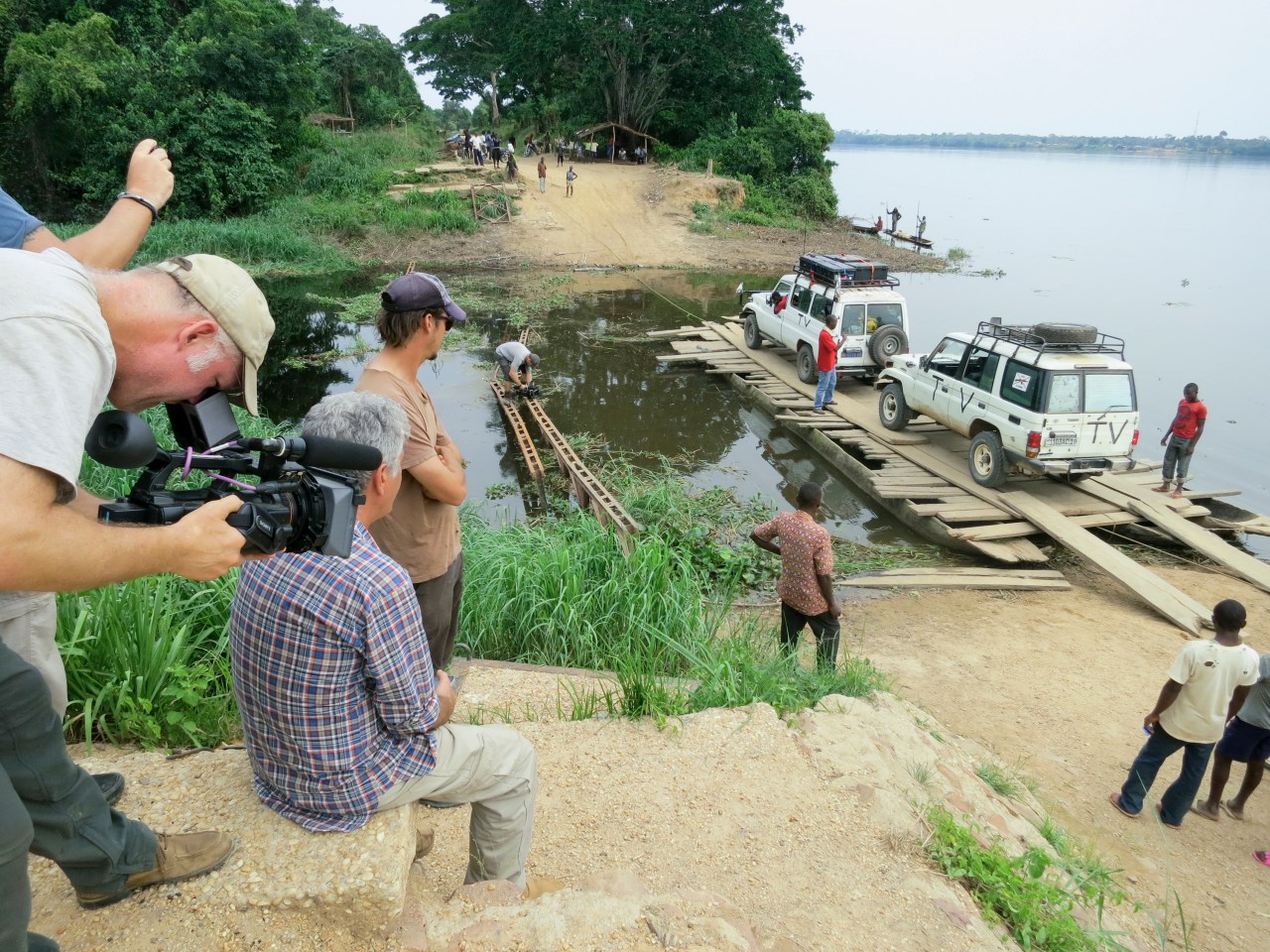Synopsis: Bourdain travels through the conflict-torn, eastern part of the Democratic Republic of Congo, fulfilling a lifelong dream inspired by Joseph Conrad’s novel Heart of Darkness. Bourdain meets locals who remain hopeful for a better future while dealing with the legacy of colonialism and reckoning with the economic impact of years of conflict.
On his lifelong fascination with the Congo:
“I’ve had something of a multi-decade obsession with the Congo. It’s been kind of a personal dream, if you will, to travel the Congo River. And now, for better or worse, I get that chance.”
“It is written that I should be loyal to the nightmare of my choice. I think I now understand what that means.”
On a voyage down the Congo River:
“Every man has a breaking point. And in retrospect perhaps this was ours.”
“I don’t think we have enough Spam, gentlemen.”
“I will get on the Spam-and-egg patrol. [We] may have invented the stealth bomber, but maybe this will be our crowning accomplishment as a culture.”

On the city of Kisangani:
“It’s an amazing-looking city. If you just blur your vision a little bit, you can see it the way it used to be.”
Guests weigh in:
Horeb Bulambo (film producer): “Things change quickly in Congo.”
[On Henry Morton Stanley, the explorer who enabled Belgian colonization of the Congo] Bourdain: “Have you ever thought about all those years ago if your people had just killed Stanley?”
Ogi (Wagenia fisherman): “Someone else would have come.”
Alub Emile (administrator at the Kisangani Railway Station): “If we are running today, it is thanks to the competent workers we have. Almost everything is broken. If we could only receive modern technical support again, we could really move forward.”
Kasongo Bertan (library keeper at the former National Institute for Agronomic Study of the Belgian Congo): “They call me the mayor because if I’m not here, nothing works. And I’m the one who knows the truth.”